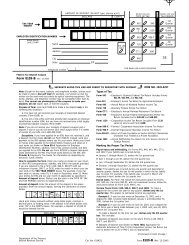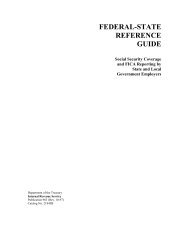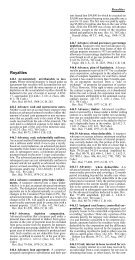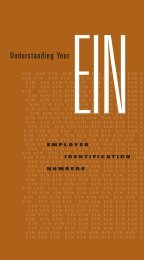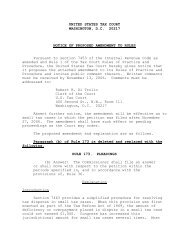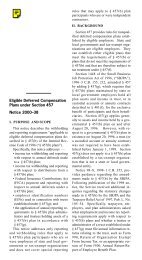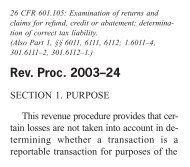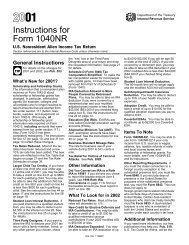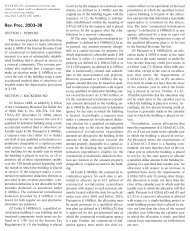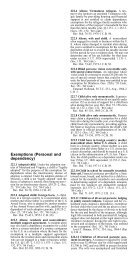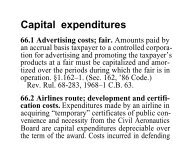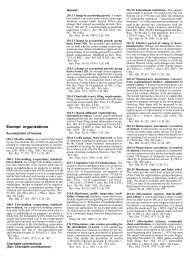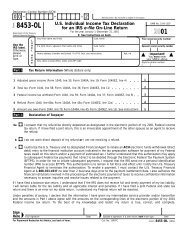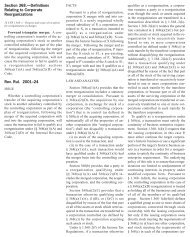Auto Dealerships - Audit Technique Guide - Uncle Fed's Tax*Board
Auto Dealerships - Audit Technique Guide - Uncle Fed's Tax*Board
Auto Dealerships - Audit Technique Guide - Uncle Fed's Tax*Board
Create successful ePaper yourself
Turn your PDF publications into a flip-book with our unique Google optimized e-Paper software.
that the advances had no fixed maturity date, and that the reinsurance company had demanded<br />
repayment on only two occasions. The judge determined that the reinsurance company was<br />
formed "to provide the shareholder with tax-free and interest-free access to profits attributable to<br />
policies issued through the shareholder’s dealership."<br />
Finally, the Court addressed a reinsurance company and supported the imposition of the fraud<br />
penalty in William T. Wright, T.C. Memo 1993-328. The Court agreed with the Service and<br />
characterized the transactions between the Wright dealerships and William Wright’s reinsurance<br />
insurance company as sham transactions. The corporate form of the captive insurance company<br />
was disregarded and its income deemed received by Wright.<br />
PORC issues are complex and require a thorough analysis of all documents and transactions.<br />
Depending on the facts and circumstances of each case, the amount paid as insurance premiums<br />
by the automobile dealership to the fronting company are not deductible under IRC section 162.<br />
The amounts ultimately remain under the practical control of the dealer who retains an economic<br />
stake in whether a covered loss occurs. The amounts paid as fees to the fronting company are<br />
deductible by the dealership based upon the principles of economic performance.<br />
Since the amounts paid are not insurance premiums, the provisions of Rev. Procs. 92-97 and<br />
97-38 do not apply.<br />
The amounts received from customers for extended service contracts are income in the year the<br />
service contracts are sold by the dealership.<br />
The dealership is entitled to a deduction under IRC section 165(a) for any losses sustained in<br />
connection with the extended service contracts during the taxable year.<br />
The reinsurance company does not qualify as an insurance company for Federal income tax<br />
purposes.<br />
All funds distributed to the shareholders by the reinsurance company are to be treated as<br />
distributions by the dealership(s) to its/their owner(s).<br />
The Captive Transaction<br />
Captive Insurance Arrangements<br />
Some industry personnel believe captive insurance applies to PORC. IRC section 162(a) permits<br />
a taxpayer to deduct its ordinary and necessary expenses paid or incurred during the taxable year<br />
in carrying on a trade or business. Treas. Reg. section 1.162-1(a) provides that allowable<br />
business expenses include premiums paid to insure against losses from fire, storm, theft, accident<br />
or similar losses suffered by a business. A corporation is not entitled to deduct amounts set aside<br />
in a self-insurance reserve to protect against potential losses. Spring Canyon Coal Co. v.<br />
Commissioner, 13 B.T.A. 189 (1928), aff’d, 43 F.2d 78 (10th Cir. 1930), cert. denied, 284 U.S.<br />
654 (1931). See Commissioner v. Lincoln Savings and Loan Assn., 403 U.S. 345 (1971), and<br />
Steere Tank Lines, Inc. v. United States, 577 F.2d 279 (5th Cir. 1978), cert. denied, 440 U.S. 946<br />
13-7



